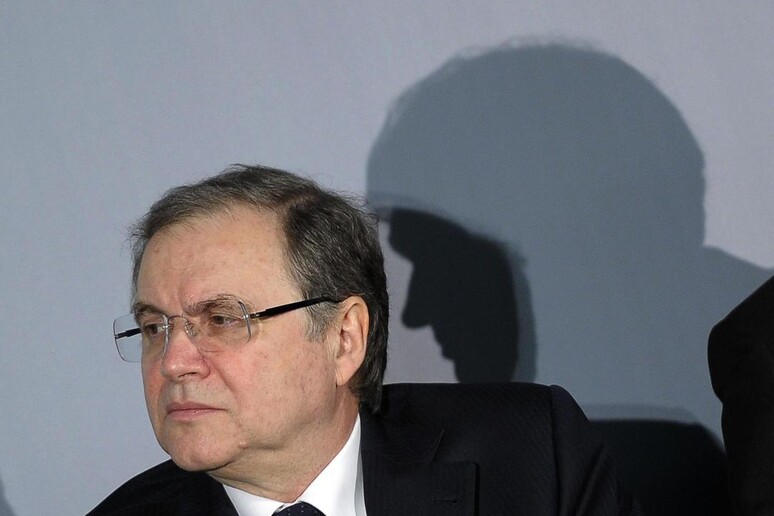Italy's recovery from its longest
and most severe recession is "fragile" and continuing low
inflation is posing a risk to recovery, Bank of Italy Governor
Ignazio Visco said Friday.
Speaking shortly after the latest statistics showed
inflation fell again in May to only 0.5% from 0.6% in April,
Visco said that such weak price pressures aren't good for the
economy and will likely press the European Central Bank (ECB)
into action.
"This is not consistent with our definition of price
stability," Visco told the Bank of Italy's annual general
meeting in Rome.
"If this pattern is confirmed, the (ECB) Governing Council
is determined to act, even with unconventional policies," said
Visco, who is a member of the ECB's governing council.
The ECB aims to maintain inflation at about 2% over the
medium term and has warned that if inflation continues to fall,
it will take action that could include unconventional measures
at its upcoming policy meeting next week.
Low inflation is particularly harmful to an economy where
debt is high and growth is sluggish, as is the case in Italy, he
warned.
The fallout from the painful recession that Italy has
suffered is "heavy," said Visco.
And the effects are not yet over - "the exit is troublesome
and the road to recovery is still fragile and uncertain, and it
will not be short nor easy," said Visco.
"A real recovery is struggling to get under way".
Italians were dealt a harsh blow earlier this month when
national statistical agency Istat reported that the country's
gross domestic product (GDP) fell by 0.1% in the first quarter
of this year rather than showing growth, as expected.
The implication is that the economy is not yet in recovery.
Part of that recovery will involving cleaning up the
national books, including such "unavoidable" measures as cutting
Italy's huge debt, said Visco.
"The reduction in the ratio of debt to GDP remains the
unavoidable challenge for our country: its speed depends on the
return to a stable and sustained growth", he said.
Italy's debt-to-GDP ratio is the second largest in the euro
zone next to Greece, at approximately 133%.
Visco added that "significant results" have been achieved
and "we are close to a structural balance of public finances" in
the eurozone's third-largest economy.
Italian Premier Matteo Renzi's tax bonus of 80 euros per
month is a "good" move, but labor reforms are greatly needed to
help boost economic recovery and growth, said Visco.
However, wary consumers who cannot afford to spend or are
afraid to open their wallets can "drag down the benefits of the
recently approved tax cuts like the 80-euro bonus", said Visco.
And the most important factor in boosting consumer
confidence in jobs.
"(Consumers) will not become the driving force of recovery
without a sustained increase in employment," he said.
To try to help small- and medium-sized businesses (SMEs) ,
often a key driver of growth and jobs, the Bank of Italy will
soon have in place new lending measures for commercial banks
that will target that sector, he said.
The program will help banks to allocate lines of credits,
create more flexible collateral management programs, and other
measures aimed at getting more money to SMEs so they can expand,
said Visco.
ALL RIGHTS RESERVED © Copyright ANSA











